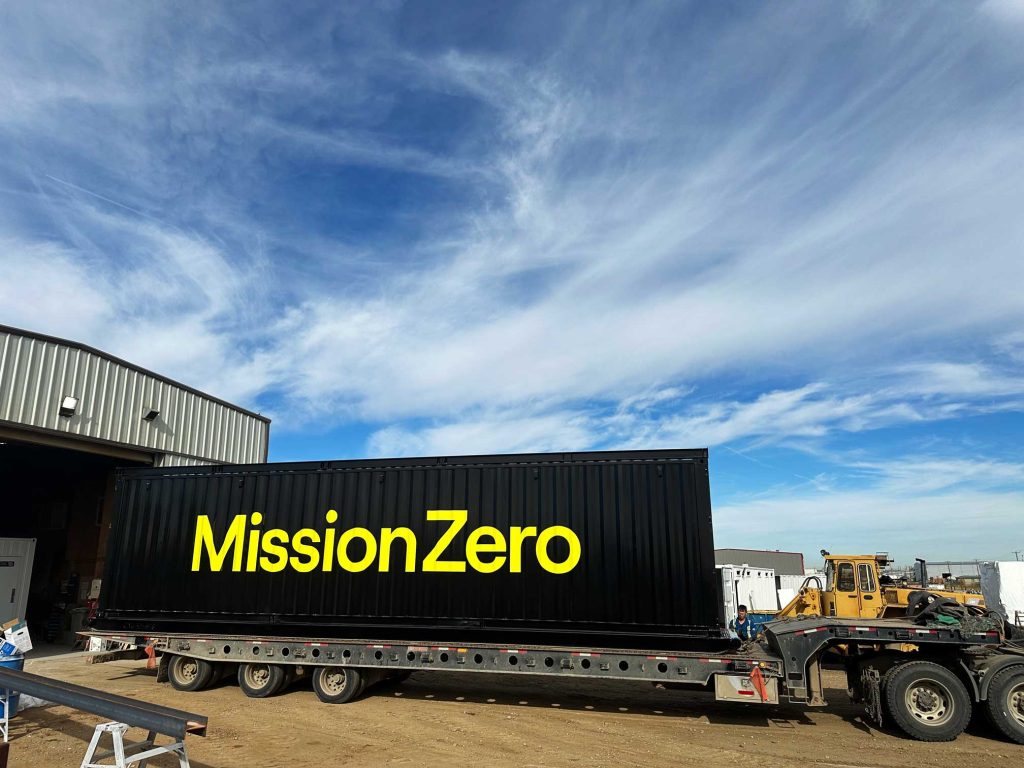Mission Zero Technologies (MZT), the UK-based startup behind the nation’s first commercial direct air capture (DAC) plant, has achieved another milestone by deploying its third modular system in Canada. The system, installed at Deep Sky Labs in Innisfail, Alberta, will play a crucial role in advancing carbon removal technology as part of a project owned and operated by carbon removal developer Deep Sky.
The project will validate the effectiveness of Mission Zero’s innovative DAC technology, which is designed to capture and store atmospheric carbon dioxide (CO2). The facility marks Mission Zero’s first international deployment and third system within a year, underscoring the rapid pace of the company’s growth.
Deep Sky Labs, located in the heart of Alberta, is dedicated to scaling up carbon removal solutions. This new system will help build on the progress made at two of Mission Zero’s UK plants, which have shown that captured carbon can be used for sustainable aviation fuel and carbon-negative building materials. The system in Canada will focus on removing atmospheric CO2 for permanent underground storage, boosting efforts to combat the climate crisis.
Powered by renewable solar energy, Mission Zero’s technology will be able to recover up to 250 tonnes of CO2 annually in this early stage. Over time, Deep Sky aims to expand the project, with a long-term goal of capturing between 100,000 and one million tonnes of CO2 each year as the facility transitions from a pilot project to a fully operational plant.
Dr Nicholas Chadwick, co-founder and CEO of Mission Zero Technologies, highlighted the significance of the deployment, saying: “Deep Sky Labs, as a project validating some of the best startups in the DAC industry, is a vital milestone for the carbon removal industry. It will show that DAC tech, when done effectively, is commercially viable and an essential tool in our fight against the climate crisis.”
Mission Zero’s modular platform approach allows the technology to be scaled quickly and reliably across various industries and locations. By using established supply chains and proven components, the company has been able to reduce both the cost and timeline for deploying its systems. The latest installation at Deep Sky was completed just 12 months after the initial contract, showcasing the speed at which this technology can be implemented.
The Alberta system is the first of its kind to be deployed in sub-zero conditions, further enriching Mission Zero’s growing database of real-world performance data. This data, collected across a range of industrial environments and climates, is key to optimising the technology and building investor confidence.
According to Dr Chadwick, this deployment marks another major step in the development of DAC technologies. “This will be Mission Zero’s third installation – providing more proof that a modular design, using proven components and established supply chains, is the best approach for delivering impactful climate technologies at pace.”
As the global fight against climate change intensifies, the deployment of DAC technology is seen as crucial in reducing atmospheric CO2 levels. Mission Zero’s work in Canada will add to the growing momentum in the carbon removal industry, helping to secure a more sustainable future. Follow their mission at www.missionzero.tech and deepskyclimate.com.


